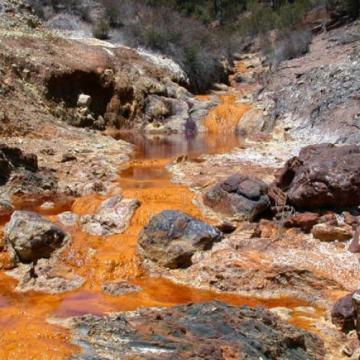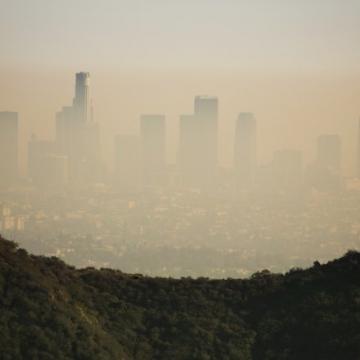-
NewsA Duke Forest tour featured research from the SEEDS Lab.
-
NewsA trove of lithium-rich brine exists underground in Bolivia. Researchers conducted the first comprehensive chemical analysis of wastewater associated with mining the resource.
-
NewsModeling experiments show Pacific warm and cold patches persisted even when continents were in different places
-
NewsReforestation in low- and middle-income countries can remove up to 10 times more carbon dioxide from the atmosphere at lower cost than previously estimated, making it a potentially more effective option to fight climate change.
-
NewsExchangeable manganese cuts carbon storage in boreal forests
-
NewsMeet the Patino-Echeverri Lab, learn more about its research focus, lab member's experiences in the lab and the opportunities the lab offers Duke students.
-
NewsAs the world endeavors to extricate itself from a carbon economy in favor of clean energy, Lee Ferguson is working to shed light on the potential environmental risks posed by bis-perfluoroalkyl sulfonimides, a primary electrolyte in lithium-ion batteries.
-
NewsAs the world undergoes the great energy transition — from fossil fuels to alternative energy and batteries — rare earth metals are becoming more precious.
-
NewsFossil-fueled electrical grid’s enormous water use is often overlooked.
-
NewsMixing toxic coal ash into acid mine drainage may sound like an odd recipe for an environmental solution, but a new Duke University-led study finds that it can neutralize the drainage’s dangerously low pH and help reduce harmful impacts on downstream ecosystems—if you use the right type of ash. Using the wrong type of ash can create new contamination and not tame the drainage’s extreme acidity.
-
NewsThe sustainability of North American forests depends on trees’ ability to produce seeds and seedlings that can survive and grow in a changing climate. A new Duke University-led research initiative with more than $2 million in funding from the National Science Foundation aims to help boost their odds of success.
-
NewsThe global supply chain impacts of Russia’s invasion of Ukraine have exposed vulnerabilities in U.S. energy security and undercut the myth that the United States — or any major manufacturing economy — is truly energy independent, an analysis by researchers at the energy nonprofit RMI and Duke University finds
-
NewsSlashing emissions of carbon dioxide by itself isn’t enough to prevent catastrophic global warming, a new study shows. But if we simultaneously also reduce emissions of methane and other often overlooked climate pollutants, we could cut the rate of global warming in half by 2050 and give the world a fighting chance.
-
NewsA forest’s ability to regenerate after devastating wildfires, droughts or other disturbances depends largely on seed production. Findings from two new studies led by Duke University researchers could boost recovery and replanting after these disasters by providing foresters with new guidance on which tree species produce more seeds and how their productivity can vary from location to location.
-
NewsProducing energy from fossil fuels uses or contaminated much more water than previously estimated, a new book by two Duke researchers shows.














